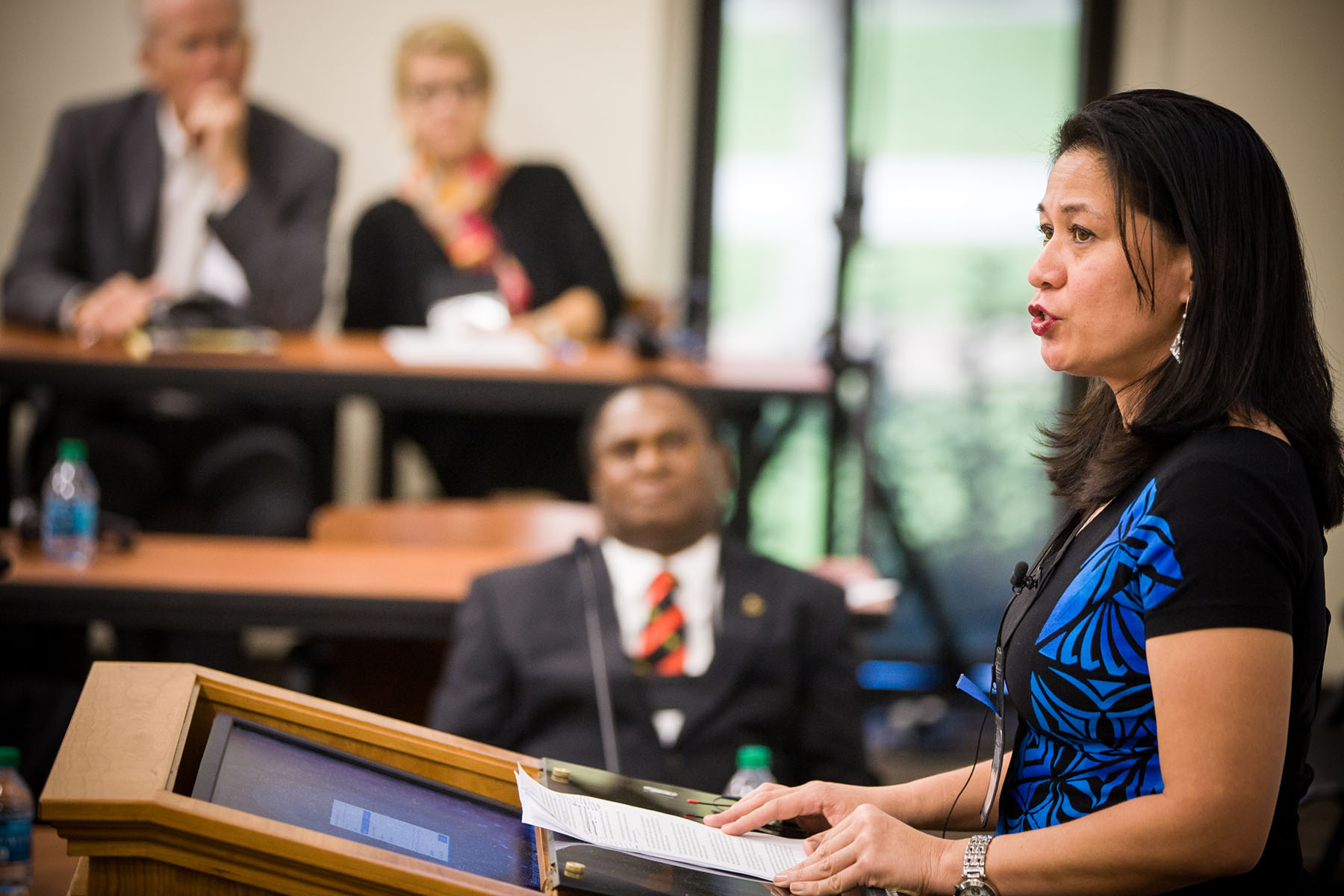Symposium 2016: Pacific Islands

by Ryan Hughes
In a session moderated by J. Clifford Wallace, Chief Judge Emeritus of the U.S. Court of Appeals for the Ninth Circuit, Gibuma Salika, from Papua New Guinea, Theresa Potoi, from Samoa, and Francis Hezel, from Guam, discussed the reality of religious liberty in the Pacific Islands and measures being undertaken to protect these freedoms.
Gibuma Salika, Deputy Chief Justice of the National Court and the Supreme Court in Papua New Guinea, discussed the protection of religious freedoms within his own nation. He described how the framers of the constitution drafted the document by considering the history of human rights in other states and the loss of those rights experienced in Papua New Guinea because of almost a century of colonial rule. The constitution protects religious liberty and is enforced by the Supreme Court when any individual brings a valid claim. The courts will also step in and moderate disputes between religious groups if needed. Salika stressed that Papua New Guinea adheres to the tradition of talking things out by following the pattern of reconciliation and forgiveness. The courts provide an adequate platform to carry out this custom.
Theresa Potoi, who is the Executive Director for the Samoa Law Reform Commission, outlined the Samoan justice and governance system and how this relates to religious liberties and freedoms. The Constitution guarantees religious freedom; however, this practice must also trickle down to the village councils. The local communities of Samoa are governed by village councils. These councils are the ones that allow religions to construct buildings and have been a source of trouble in allowing new religions to have this right. Although the court system often sides with the minority religion’s right to build, people will not try to carry out the ruling until reconciliation has taken place between the religious minority and the village council. If no reconciliation takes place, there will be no building and the people will often be banished and forced to move elsewhere. She stressed the importance of finding a balance between this customary way of life that is vital to all Samoans and the need to protect religious liberties outlined in the Samoan Constitution.
Francis Hezel, who is a Jesuit Priest at the Santa Barbara Parish in Guam and has published numerous papers and books on religious freedom, discussed the development of human rights within the region. He described how the modern ideas of human rights developed in Europe and were a confluence of the ideas of individualism and a powerful nation state. These ideas did not develop at the same time in the Pacific Islands but transferred over time and as nations were granted their independence from colonial powers. He stressed that human rights in the area are not based on selfish desires or needs but instead are founded on the idea of how the individual takes his place by participation in the community. He also described how Micronesia respects religious freedoms because the identity of the people is based on families and communities and not on religion.